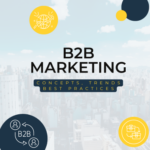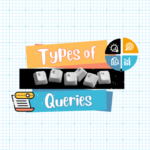Understanding the distinction between B2B (Business-to-Business) and B2C (Business-to-Consumer) strategies is crucial for effectively targeting and engaging with your intended audience. While both strategies share the goal of reaching customers and driving sales, their approaches, communication styles, and customer interactions differ significantly due to their unique audience needs. Therefore, recognizing these differences allows for more tailored and effective marketing efforts.
At The Zulfis, we specialize in helping businesses navigate these differences with tailored marketing strategies that drive results. Moreover, our expertise ensures your campaigns are optimized for your specific target audience, whether B2B or B2C. In this blog, we will explore the key differences and strategies for effective B2B and B2C marketing, providing insights to help you enhance your marketing efforts.
Defining B2B and B2C Marketing
What is B2B Marketing?
B2B marketing targets the needs, interests, and challenges of individuals who purchase on their organization’s behalf rather than for personal use. Therefore, products and services are often sold to other businesses for operational, functional, or production reasons. Consequently, the focus is on building relationships, making logical, process-driven purchasing decisions, and employing direct engagement strategies. Additionally, B2B marketing often involves longer sales cycles, necessitating consistent and meaningful interactions with clients.
What is B2C Marketing?
Conversely, B2C marketing targets individual consumers who are the end-users of the products or services. The purchasing process is much more personal and often emotionally driven. Consequently, B2C marketing strategies are crafted to trigger quick decisions and often leverage emotional appeals, catchy messaging, and high visibility through various media channels.
Customer Relationships
Building Personal Relationships in B2B
In B2B marketing, the relationship with the customer is paramount. Consequently, longer sales cycles often involve multiple touchpoints and extensive nurturing campaigns. Ongoing communication, educational content, and detailed consultations build these relationships, thereby establishing trust and credibility.
Transactional Focus in B2C
B2C customer relationships tend to be more transactional and less personal. The focus is creating an efficient purchase path with a seamless customer experience. Although the emotional connection is crucial, the interaction is often short-lived. Consequently, the primary goal is to drive quick purchases and repeat business through brand loyalty.
Stay updated with the latest trends in marketing and business growth. Visit our blog page now!
How Engagement Strategies Differ Between B2B and B2C
Engagement strategies in B2B require a detailed understanding of the business’s needs, involving presentations and personalized communications. On the other hand, B2C strategies use broad-reaching campaigns featuring promotions, discounts, and mass media outreach to engage customers.

Boost your business with The Zulfis®! Backed by ten years of expertise in lead generation and list building, we're committed to providing outstanding value.Try our services with a FREE SAMPLE before committing to a contract. Let's drive your business growth together—start today!
Marketing Strategies
Content and Messaging in B2B
B2B marketing content is informational and rich in technical details that help potential customers make informed decisions. Therefore, the messaging is tailored to reflect a deep understanding of the industry’s pain points, showcasing how their solutions can effectively alleviate these pains.
Emotional and Direct Marketing in B2C
B2C marketing thrives on emotional appeal and immediate gratification. Marketing messages are designed to evoke emotional responses that drive consumers to purchase impulsively. Strategies include appealing visuals, relatable narratives, and straightforward benefits that highlight the product’s value to the consumer’s lifestyle.
Contact us today, and let's start a conversation!
Decision-Making Processes
Complex Decision-Making in B2B
The B2B decision-making process is complex and often involves multiple stakeholders. Consequently, different levels within a company must approve each purchase, necessitating a more consultative selling approach and clear communication of ROI and business value.
Simplified Decision-Making in B2C
In contrast, B2C decision-making is usually straightforward. Individuals make quick decisions based largely on emotions like desire, need, and price. Therefore, the simplicity of the process allows for faster sales cycles and higher transaction volumes.
Sales Cycles and Purchasing Behavior
Long Sales Cycles in B2B
The characteristically long B2B sales cycles stem from the nature of organizations’ purchasing processes. As a result, fostering relationships, understanding detailed business needs, and managing a complex buying process that can extend over months or even years is the focus.
Quick Purchases in B2C
B2C transactions are generally quick, with shorter sales cycles due to the less complicated purchasing process. Consumers expect instant gratification, prompting businesses to streamline purchasing to accommodate rapid decision-making.
Case Studies and Real-world Examples
Tailor case studies and examples to illustrate successful B2B and B2C marketing strategies, highlighting key tactics and outcomes.
Conclusion
Ultimately, the dichotomy between B2B and B2C marketing strategies underscores the importance of tailoring your approach to fit your target audience’s needs and behaviors. Therefore, whether you are nurturing a long-term relationship in a B2B context or aiming for immediate impact in a B2C scenario, understanding these differences will enable you to optimize your marketing efforts and achieve better results.
Ready to take your marketing to the next level? Discover how our expert services can drive your business growth.



